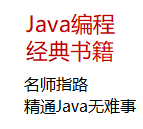|
|
java使用gzip实现文件解压缩示例
代码如下:
package com.cjonline.foundation.cpe.action;
import java.io.ByteArrayInputStream;
import java.io.ByteArrayOutputStream;
import java.io.File;
import java.io.FileInputStream;
import java.io.FileOutputStream;
import java.io.InputStream;
import java.io.OutputStream;
import java.util.zip.GZIPInputStream;
import java.util.zip.GZIPOutputStream;
public abstract class GZipUtils {
public static final int BUFFER = 1024;
public static final String EXT = ".gz";
/**
* 数据压缩
*
* @param data
* @return
* @throws Exception
*/
public static byte[] compress(byte[] data) throws Exception {
ByteArrayInputStream bais = new ByteArrayInputStream(data);
ByteArrayOutputStream baos = new ByteArrayOutputStream();
// 压缩
compress(bais, baos);
byte[] output = baos.toByteArray();
baos.flush();
baos.close();
bais.close();
return output;
}
/**
* 文件压缩
*
* @param file
* @throws Exception
*/
public static void compress(File file) throws Exception {
compress(file, true);
}
/**
* 文件压缩
*
* @param file
* @param delete
* 是否删除原始文件
* @throws Exception
*/
public static void compress(File file, boolean delete) throws Exception {
FileInputStream fis = new FileInputStream(file);
FileOutputStream fos = new FileOutputStream(file.getPath() + EXT);
compress(fis, fos);
fis.close();
fos.flush();
fos.close();
if (delete) {
file.delete();
}
}
/**
* 数据压缩
*
* @param is
* @param os
* @throws Exception
*/
public static void compress(InputStream is, OutputStream os)
throws Exception {
GZIPOutputStream gos = new GZIPOutputStream(os);
int count;
byte data[] = new byte[BUFFER];
while ((count = is.read(data, 0, BUFFER)) != -1) {
gos.write(data, 0, count);
}
gos.finish();
gos.flush();
gos.close();
}
/**
* 文件压缩
*
* @param path
* @throws Exception
*/
public static void compress(String path) throws Exception {
compress(path, true);
}
/**
* 文件压缩
*
* @param path
* @param delete
* 是否删除原始文件
* @throws Exception
*/
public static void compress(String path, boolean delete) throws Exception {
File file = new File(path);
compress(file, delete);
}
/**
* 数据解压缩
*
* @param data
* @return
* @throws Exception
*/
public static byte[] decompress(byte[] data) throws Exception {
ByteArrayInputStream bais = new ByteArrayInputStream(data);
ByteArrayOutputStream baos = new ByteArrayOutputStream();
// 解压缩
decompress(bais, baos);
data = baos.toByteArray();
baos.flush();
baos.close();
bais.close();
return data;
}
/**
* 文件解压缩
*
* @param file
* @throws Exception
*/
public static void decompress(File file) throws Exception {
decompress(file, true);
}
/**
* 文件解压缩
*
* @param file
* @param delete
* 是否删除原始文件
* @throws Exception
*/
public static void decompress(File file, boolean delete) throws Exception {
FileInputStream fis = new FileInputStream(file);
FileOutputStream fos = new FileOutputStream(file.getPath().replace(EXT,
""));
decompress(fis, fos);
fis.close();
fos.flush();
fos.close();
if (delete) {
file.delete();
}
}
/**
* 数据解压缩
*
* @param is
* @param os
* @throws Exception
*/
public static void decompress(InputStream is, OutputStream os)
throws Exception {
GZIPInputStream gis = new GZIPInputStream(is);
int count;
byte data[] = new byte[BUFFER];
while ((count = gis.read(data, 0, BUFFER)) != -1) {
os.write(data, 0, count);
}
gis.close();
}
/**
* 文件解压缩
*
* @param path
* @throws Exception
*/
public static void decompress(String path) throws Exception {
decompress(path, true);
}
/**
* 文件解压缩
*
* @param path
* @param delete
* 是否删除原始文件
* @throws Exception
*/
public static void decompress(String path, boolean delete) throws Exception {
File file = new File(path);
decompress(file, delete);
}
} |
程序猿的技术大观园:www.javathinker.net
|
|

















